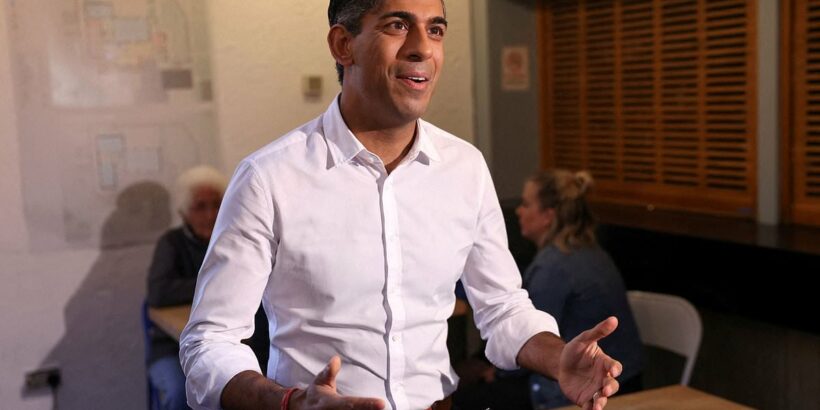The drive for Net Zero ‘could cost households £6,000 a year’ despite Rishi Sunak ditching or delaying green policies, report warns
- Rishi Sunak has already ditched or delayed several green policies
- It was previously estimated that the price tag for net zero would be £1.3 trillion
- But Civitas says it may cost up to £4.5 trillion to reach net zero by 2050
A row broke out last night over the race to net zero amid claims it could cost every household £6,000 a year.
Despite Rishi Sunak ditching or delaying a host of green policies last week, a report by the Civitas think-tank said the Government’s current eco-drive will cost £4.5trillion by the 2050 deadline.
The Climate Change Committee previously estimated the price tag for net zero would be £1.3trillion. But economist Ewen Stewart, who authored the report, accused ministers of underestimating the cost of net-zero policies.
He said Britain was a ‘global outlier’ in the strength of its emissions targets – despite having already cut ‘harder and faster than almost all other developed nations’.
Civitas also claimed that the committee underestimated the impact of interest rates on borrowing costs, the cost of building new electricity generating capacity, and potential job losses in the automotive industry.
Rishi Sunak (pictured) has already delayed or ditched several green policies
Mr Stewart said: ‘The real cost is likely to top £4.5trillion by 2050. Break that down by household and it means families face a bill of over £6,000 a year until 2050. Is that really affordable when what the UK does makes little difference globally given our emissions are less than 1 per cent of the world total? To make matters worse, these estimates are extremely conservative.’
The figures have been branded ‘inaccurate and unnecessarily alarmist’ by renewable energy trade association RenewableUK.
A Department for Energy Security and Net Zero spokesman also dismissed the findings.
They said: ‘We simply do not accept these figures. The report fails to recognise the financial savings from lower fuel costs and technological advances – such as offshore wind costs falling by 70 per cent more than we projected in 2016.
‘We are adopting a more pragmatic, proportionate and realistic approach to meeting the 2050 target, in a way that eases the burden on families – as was set out by the Prime Minister.
‘The UK is on track to deliver international commitments and we are capitalising on opportunities to attract investment, create jobs and grow the economy.’
Source: Read Full Article

